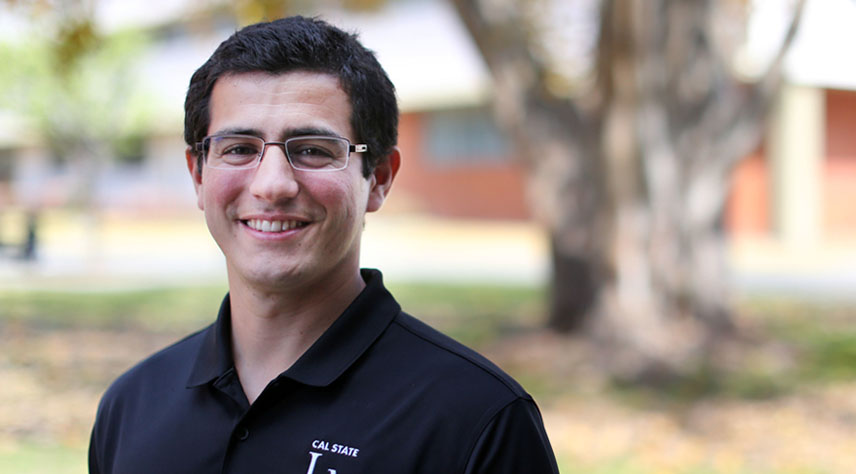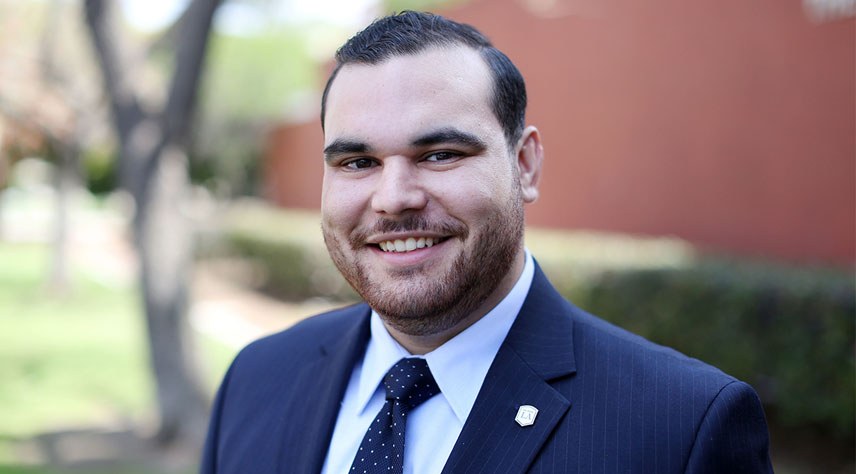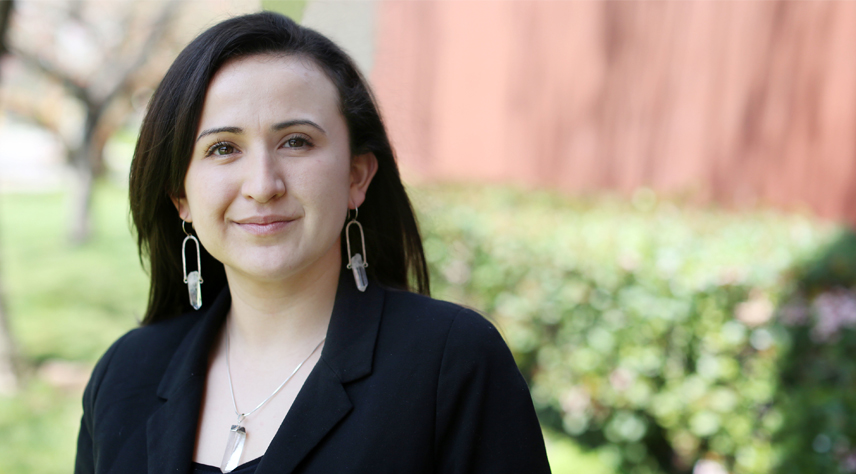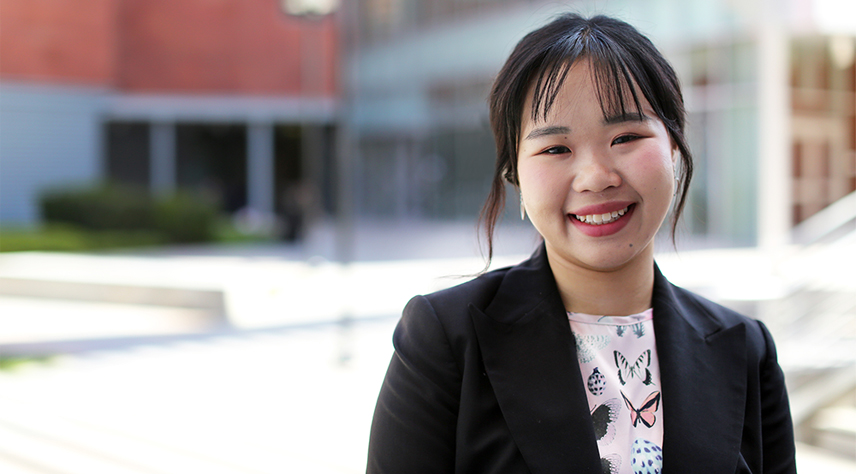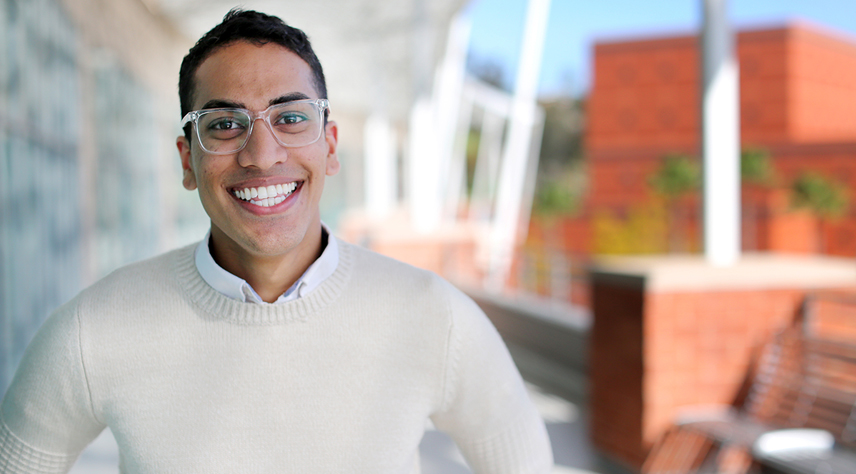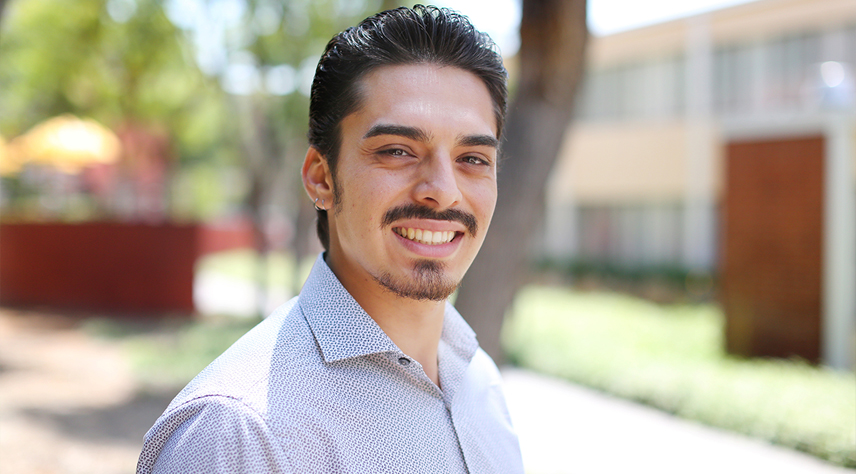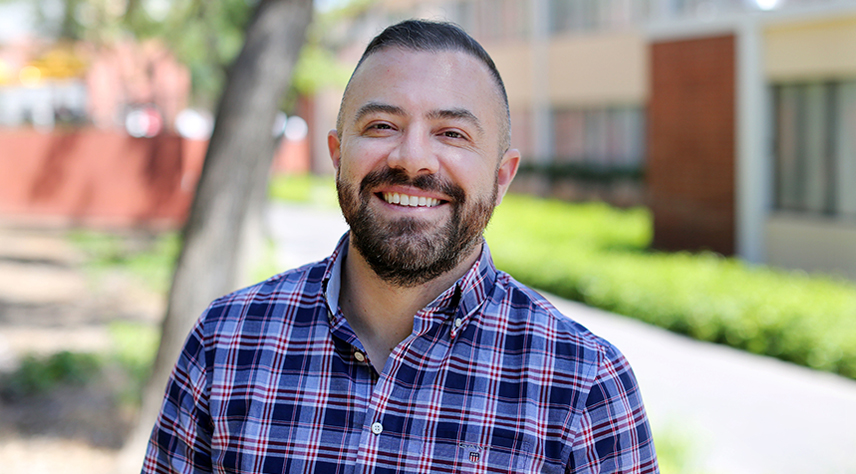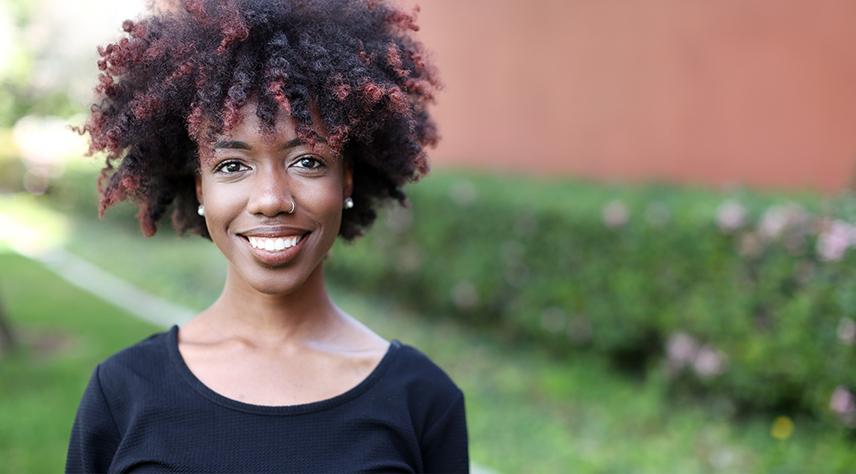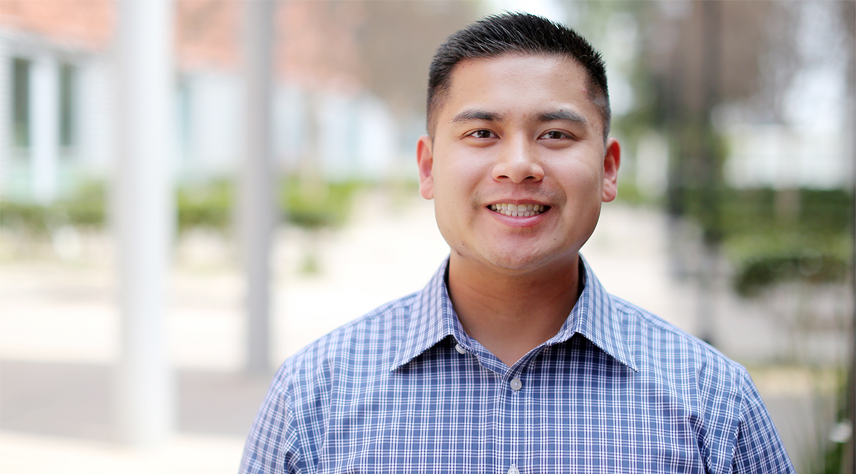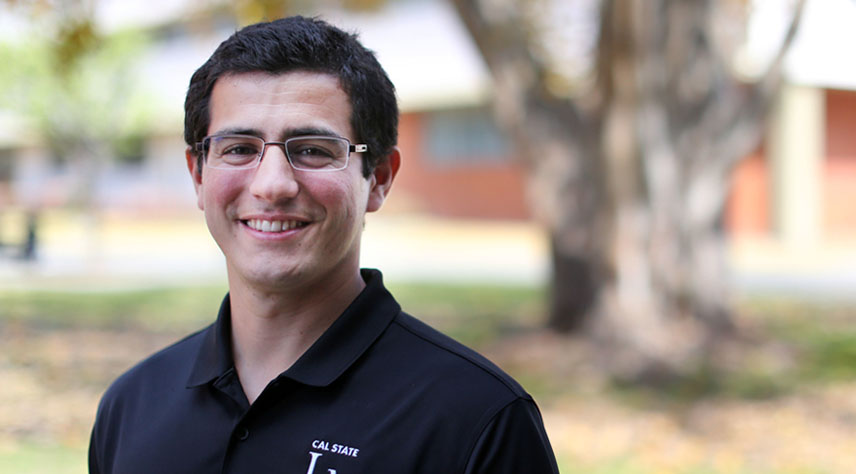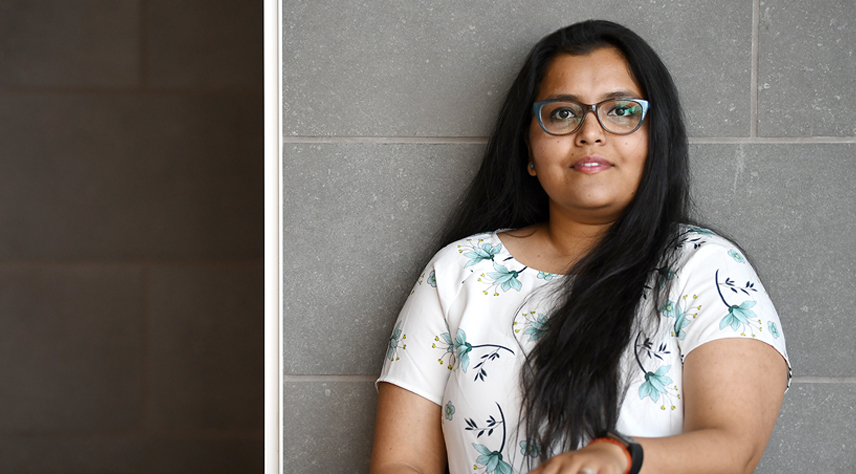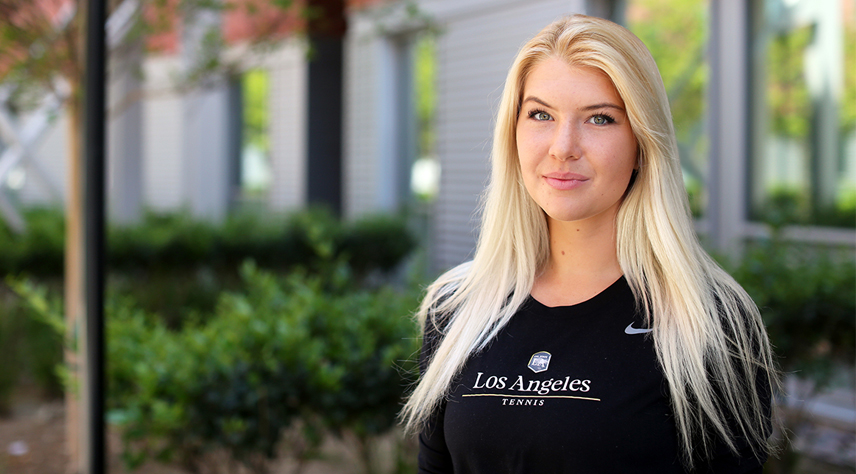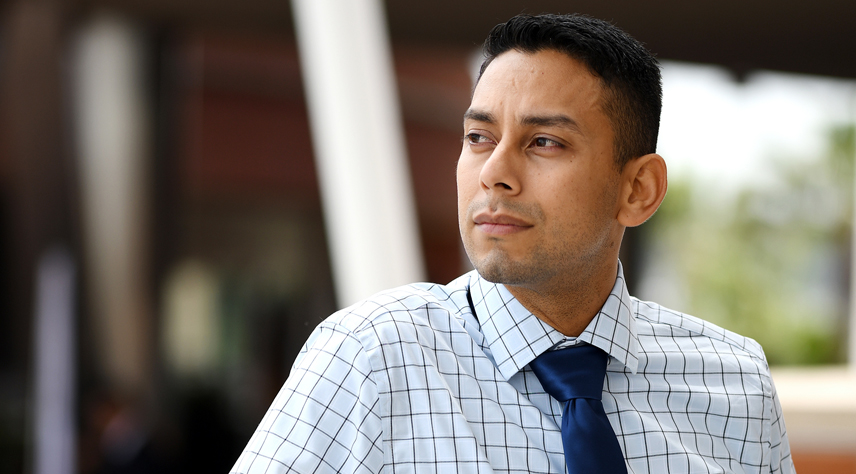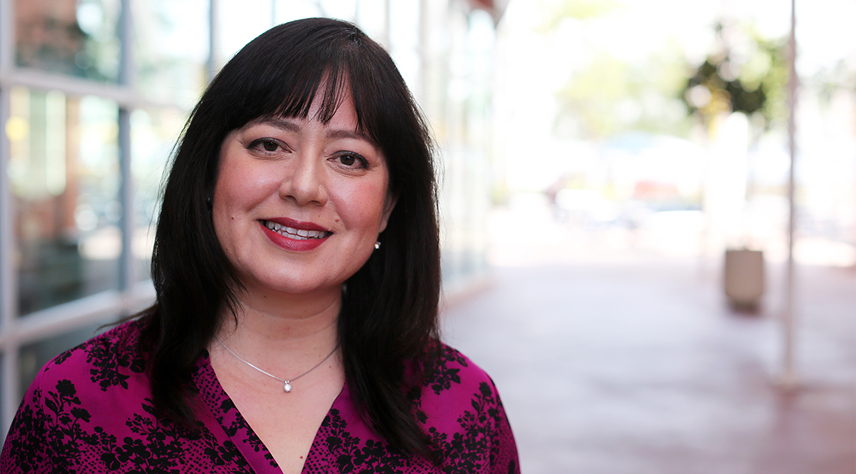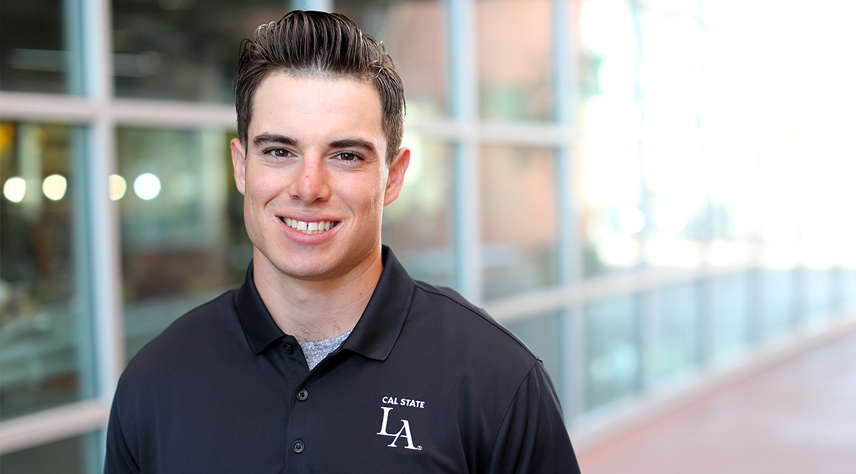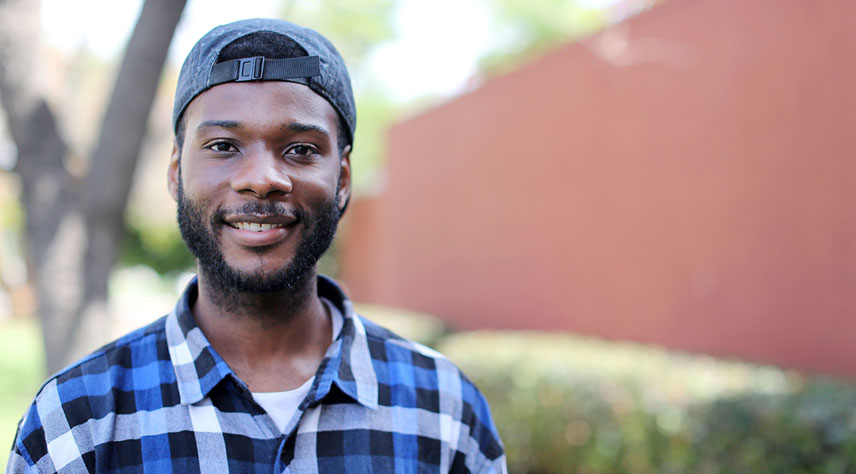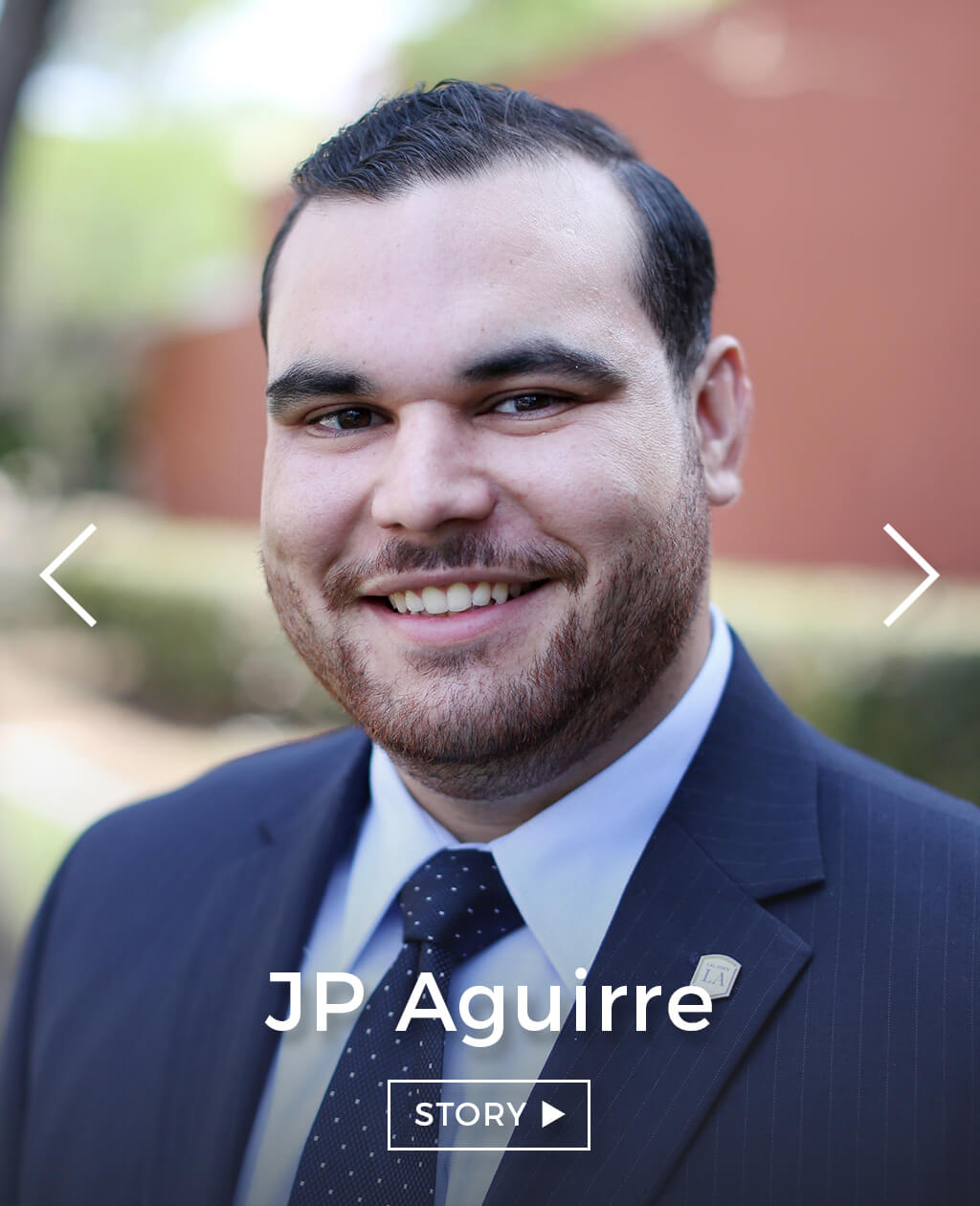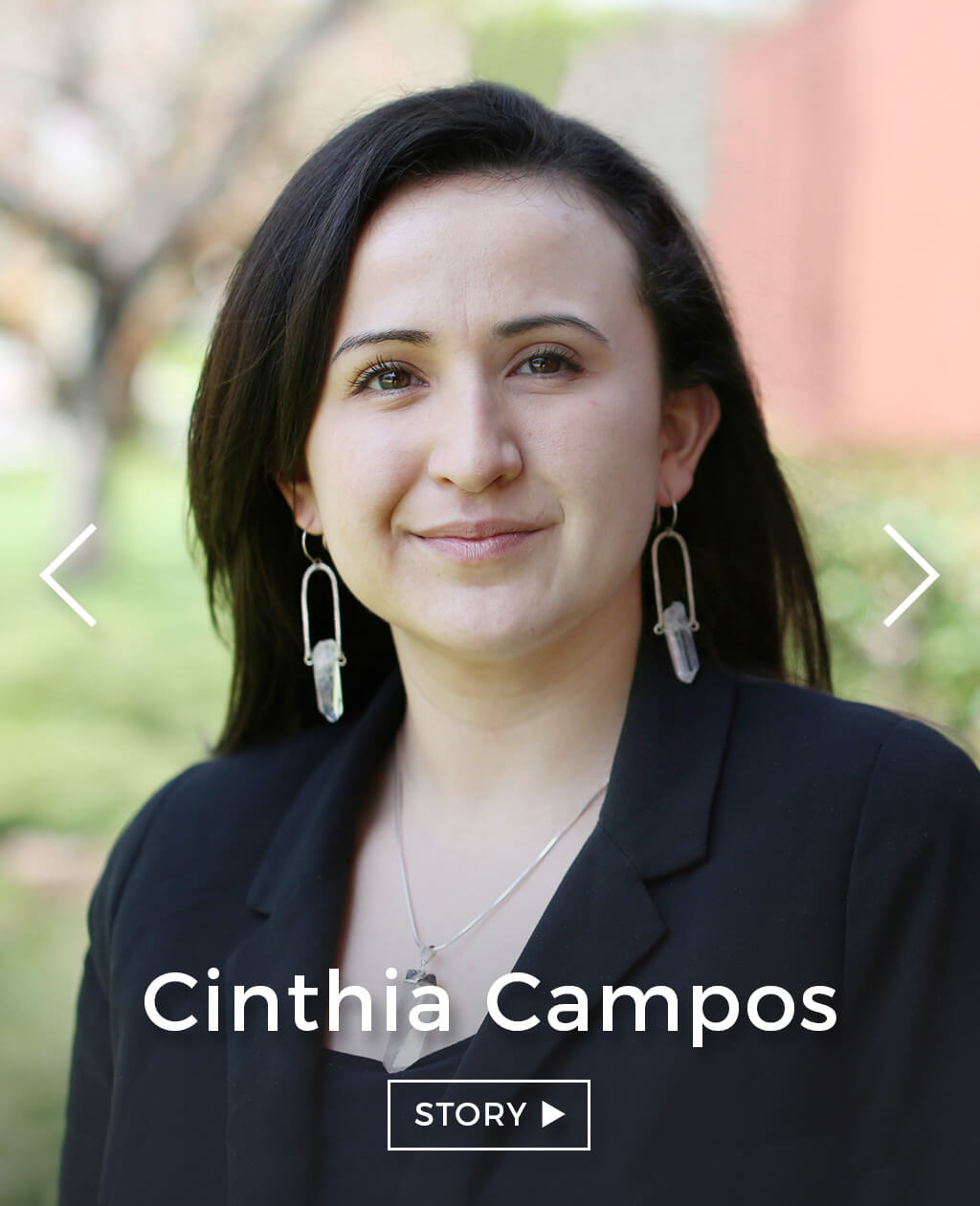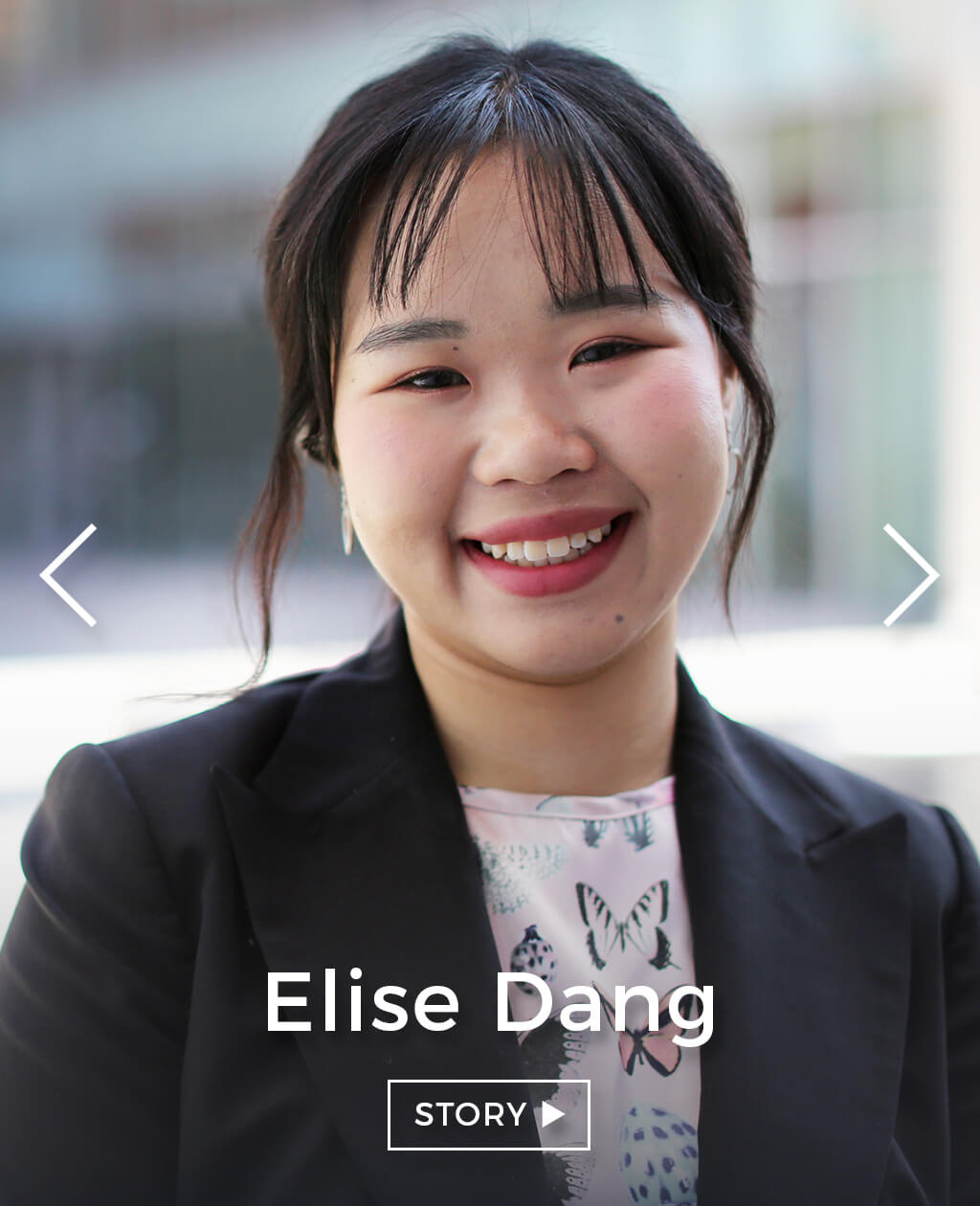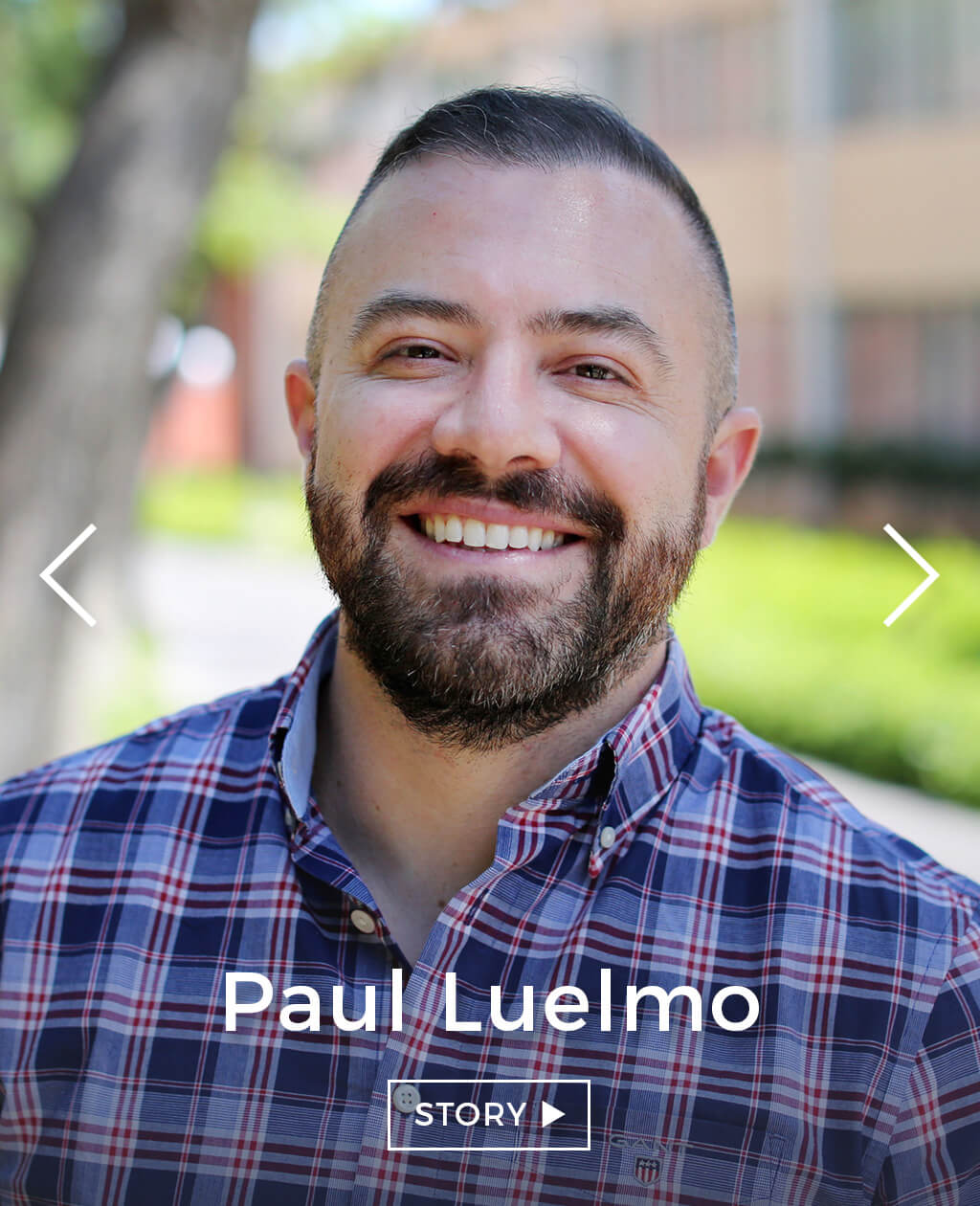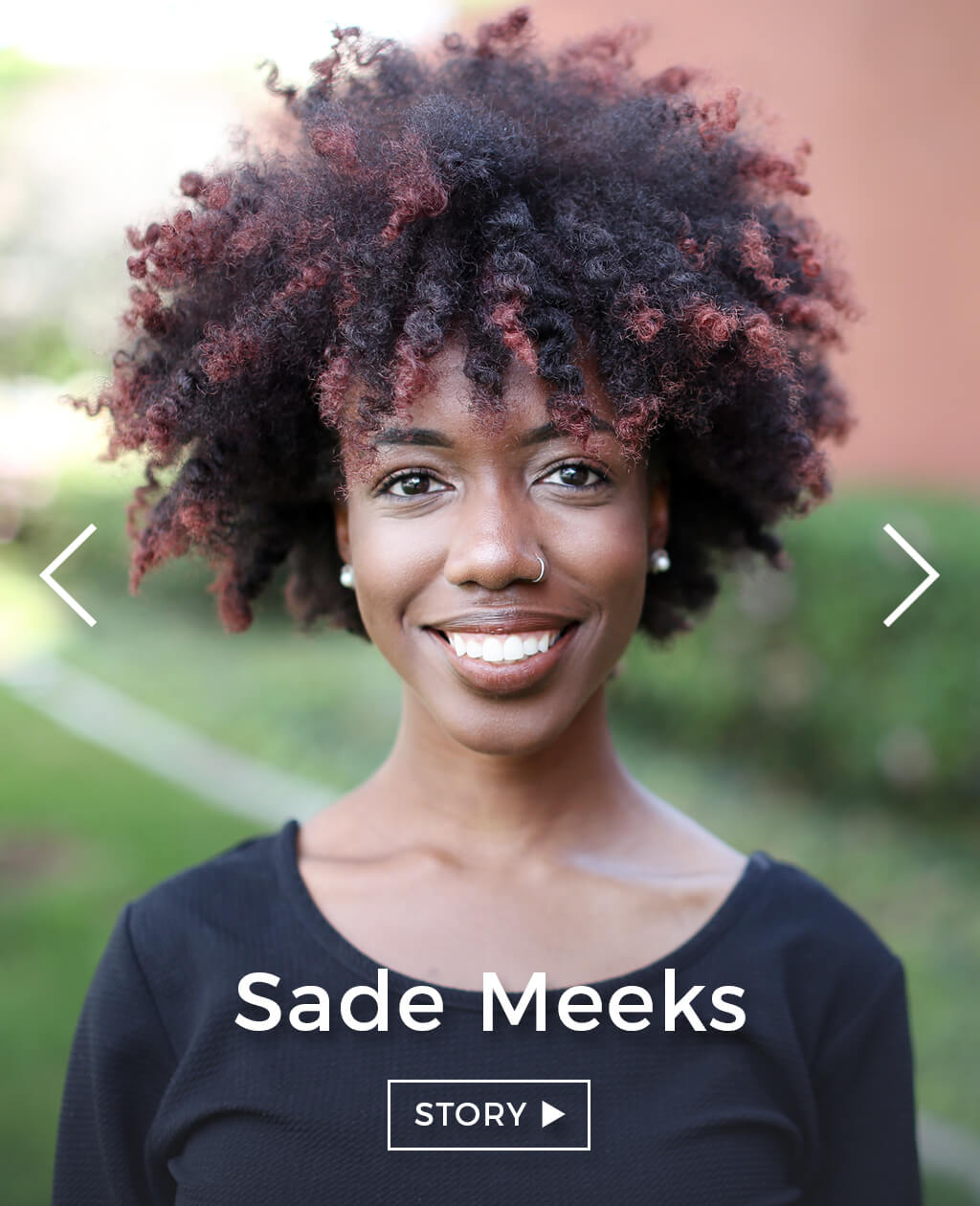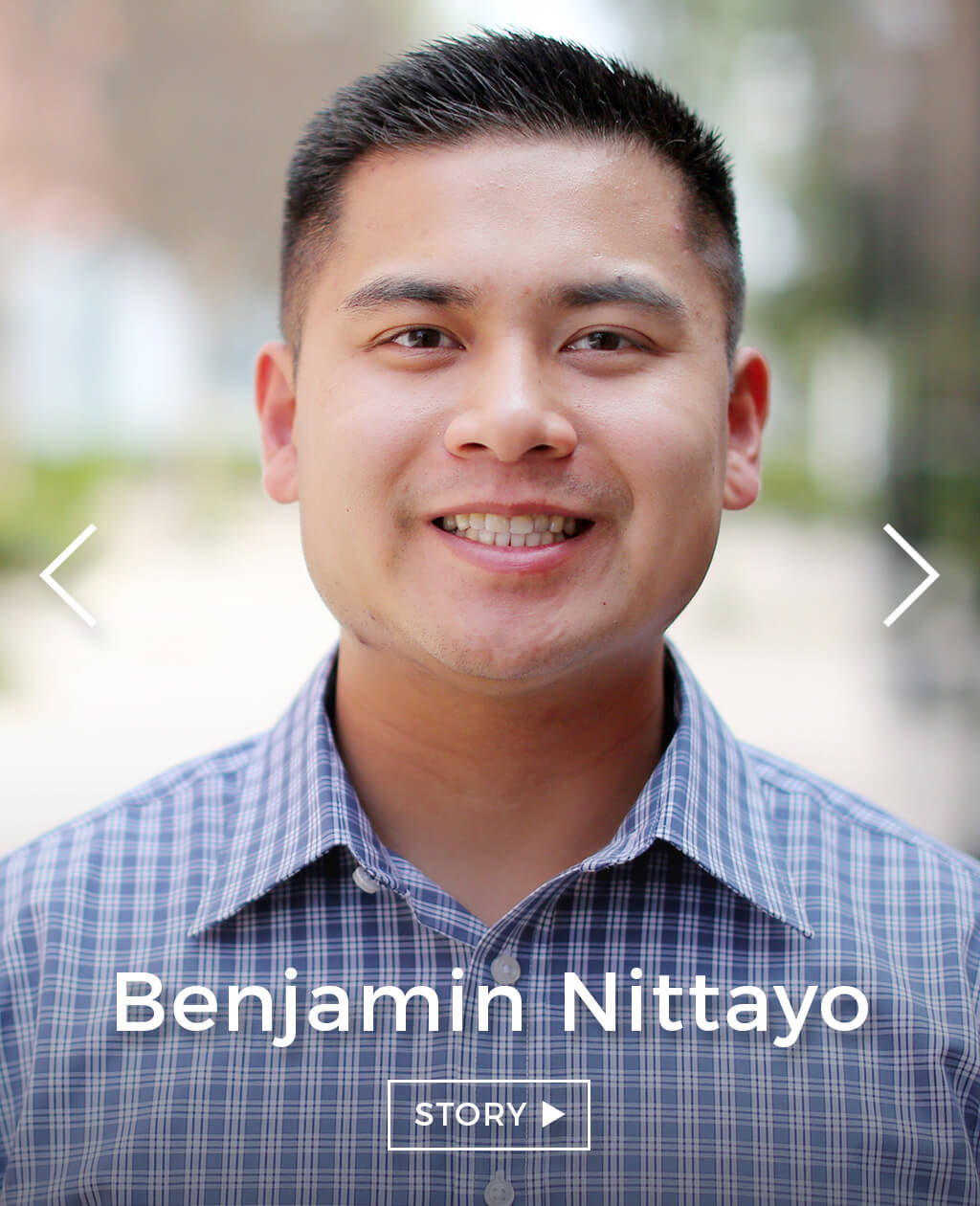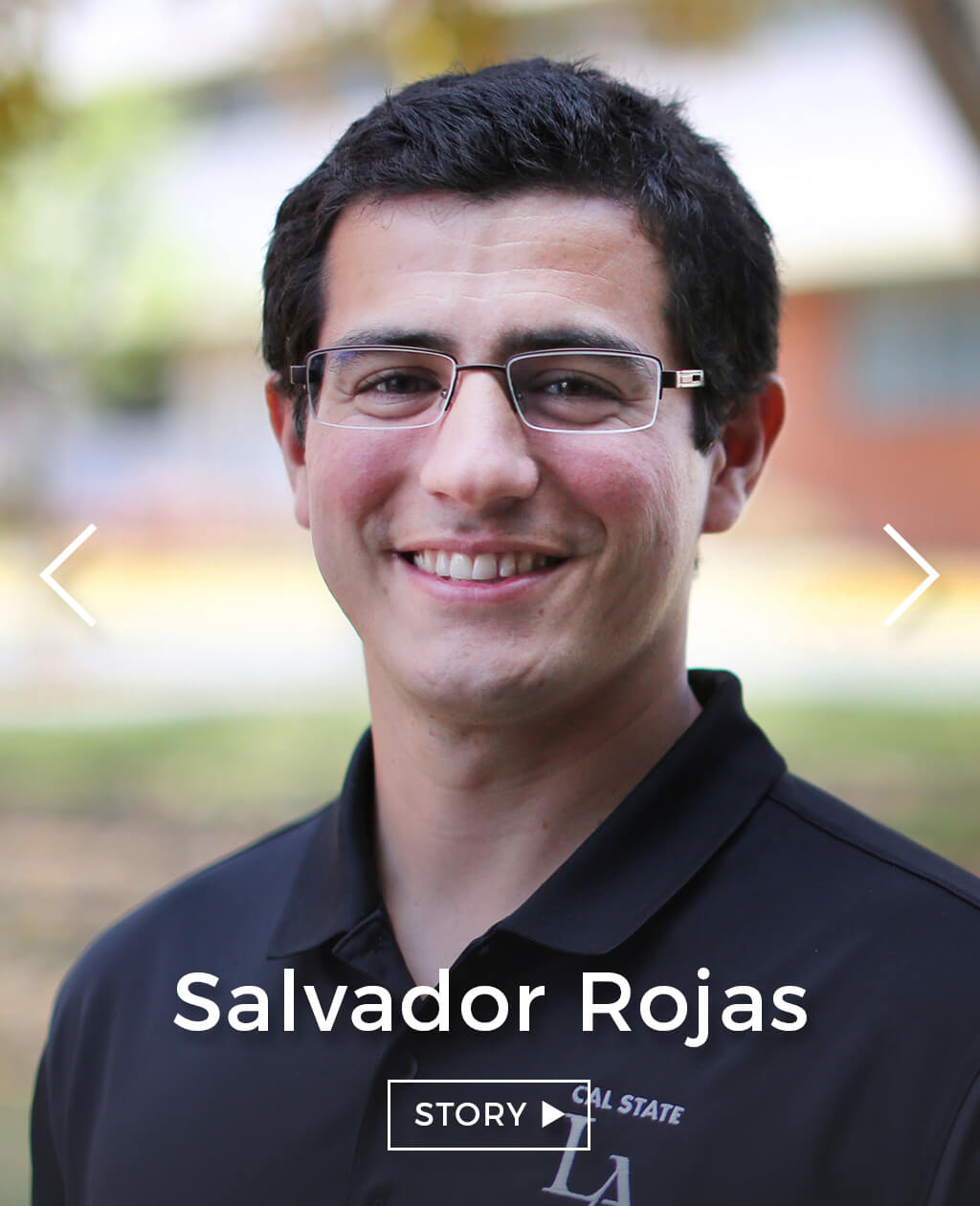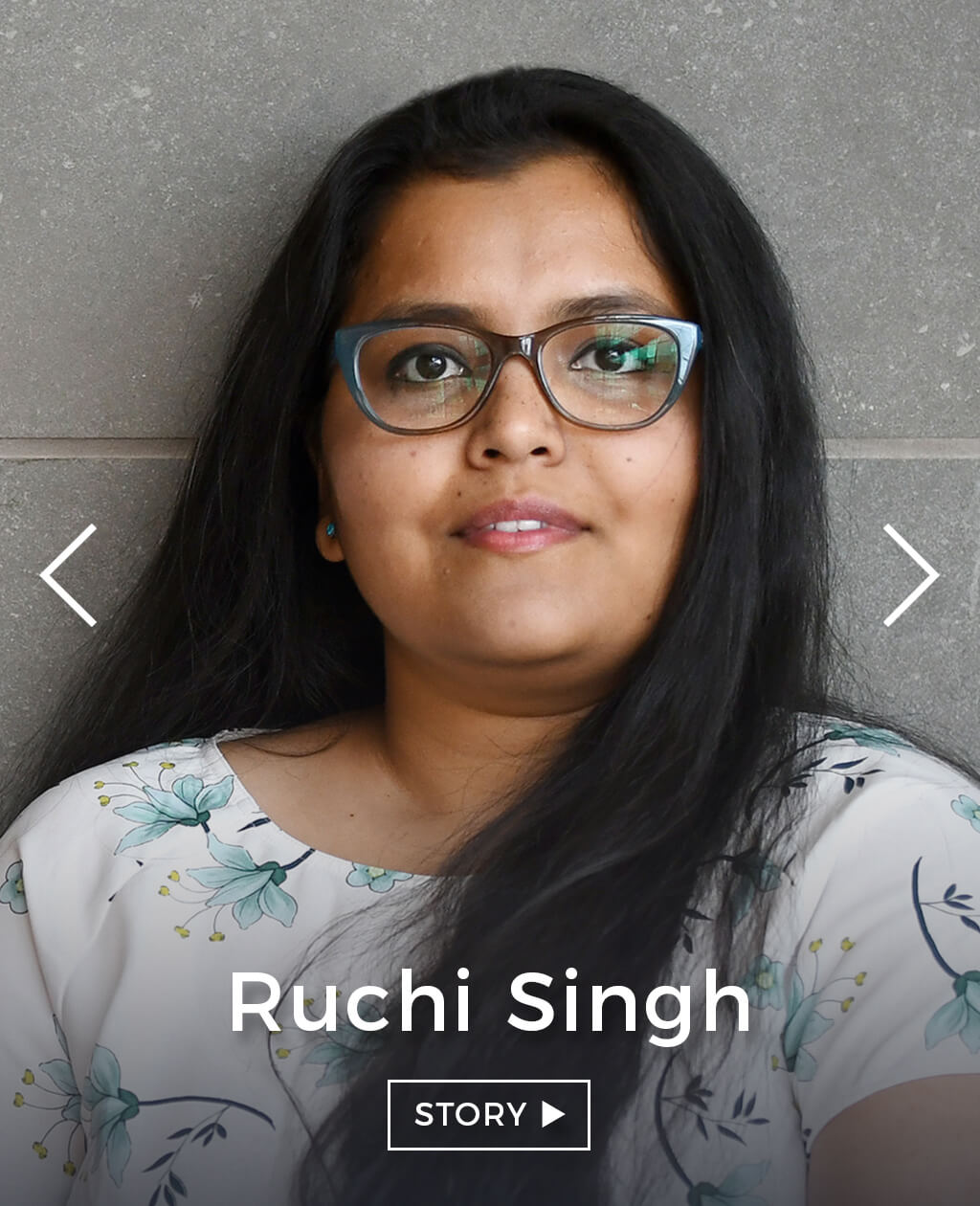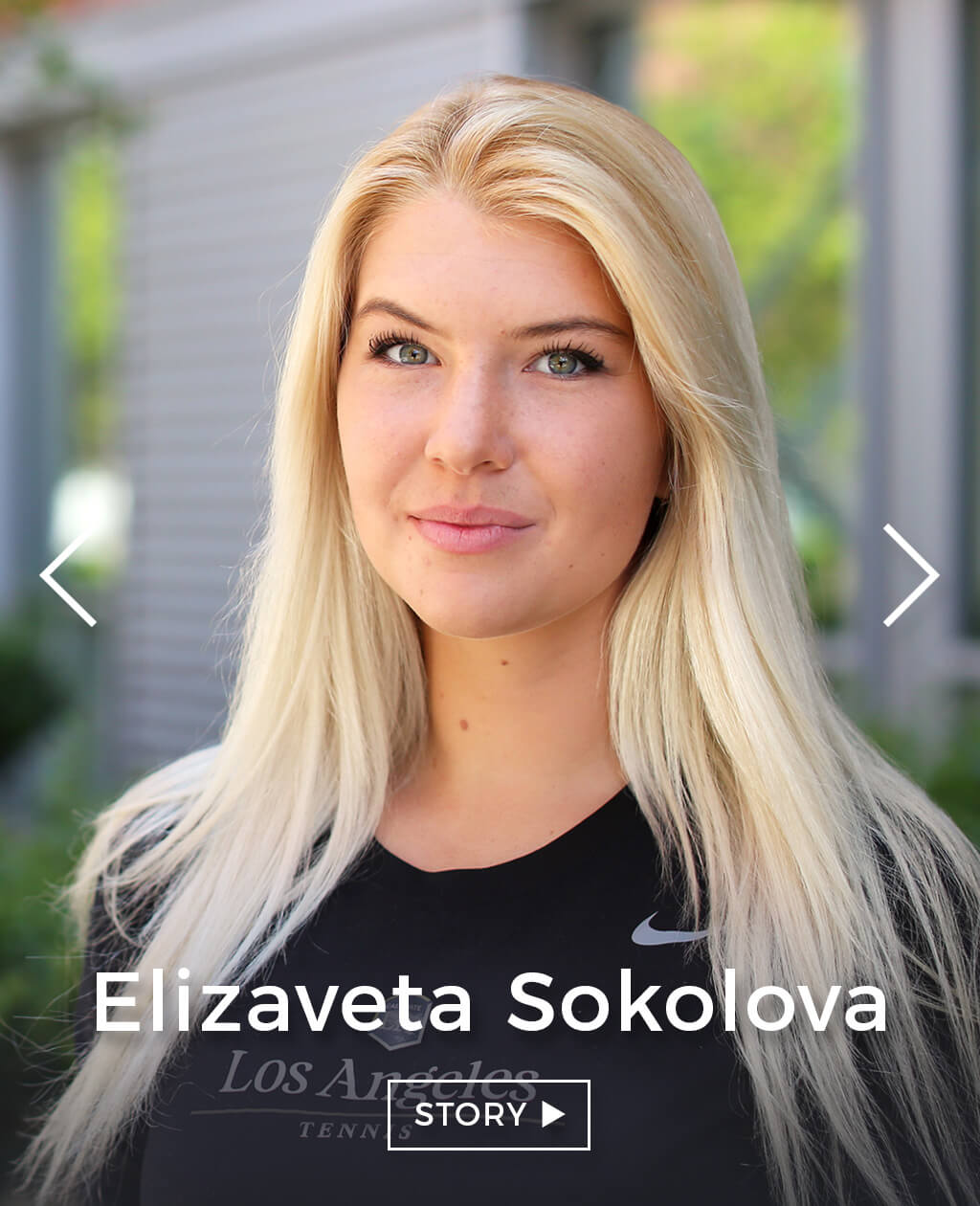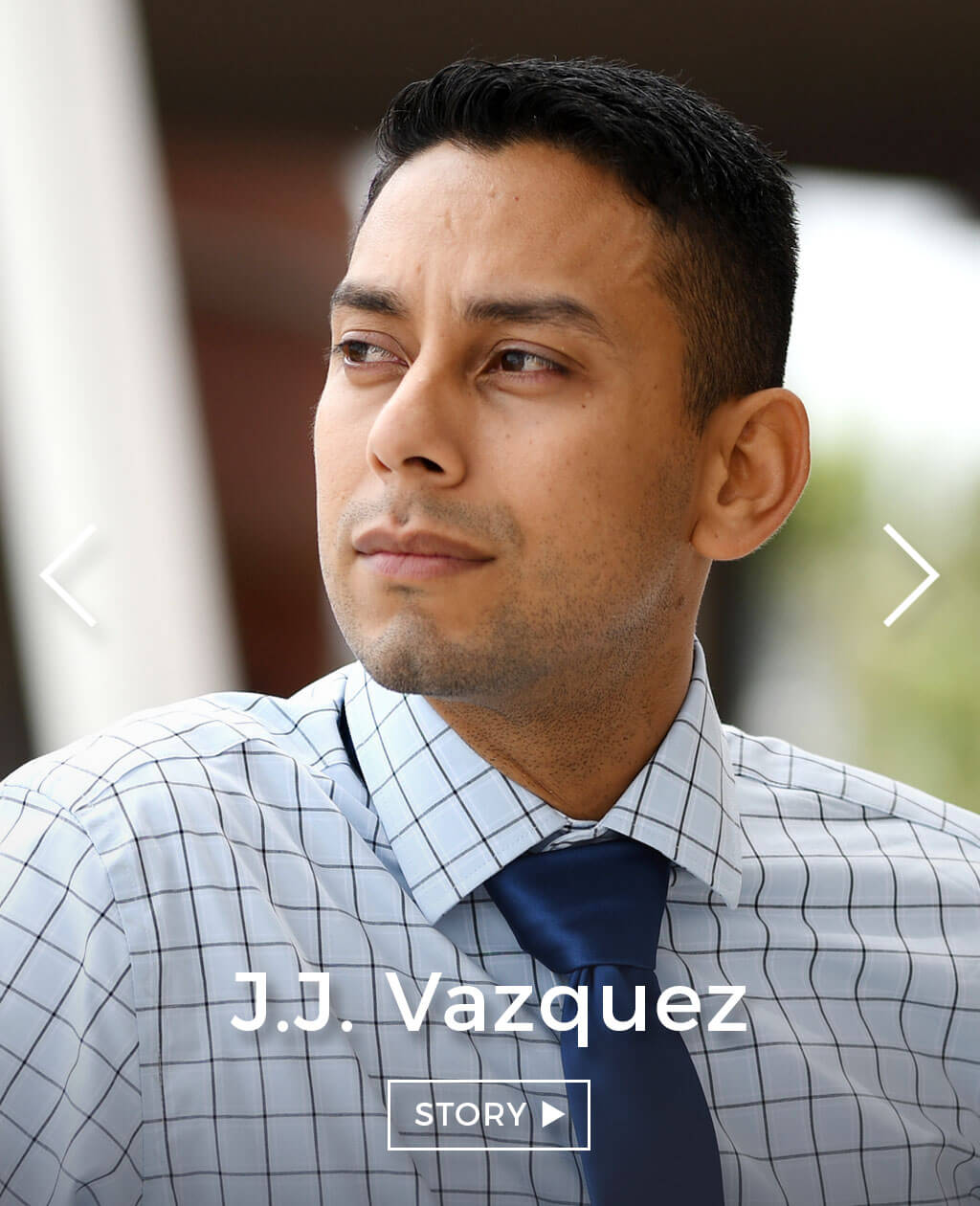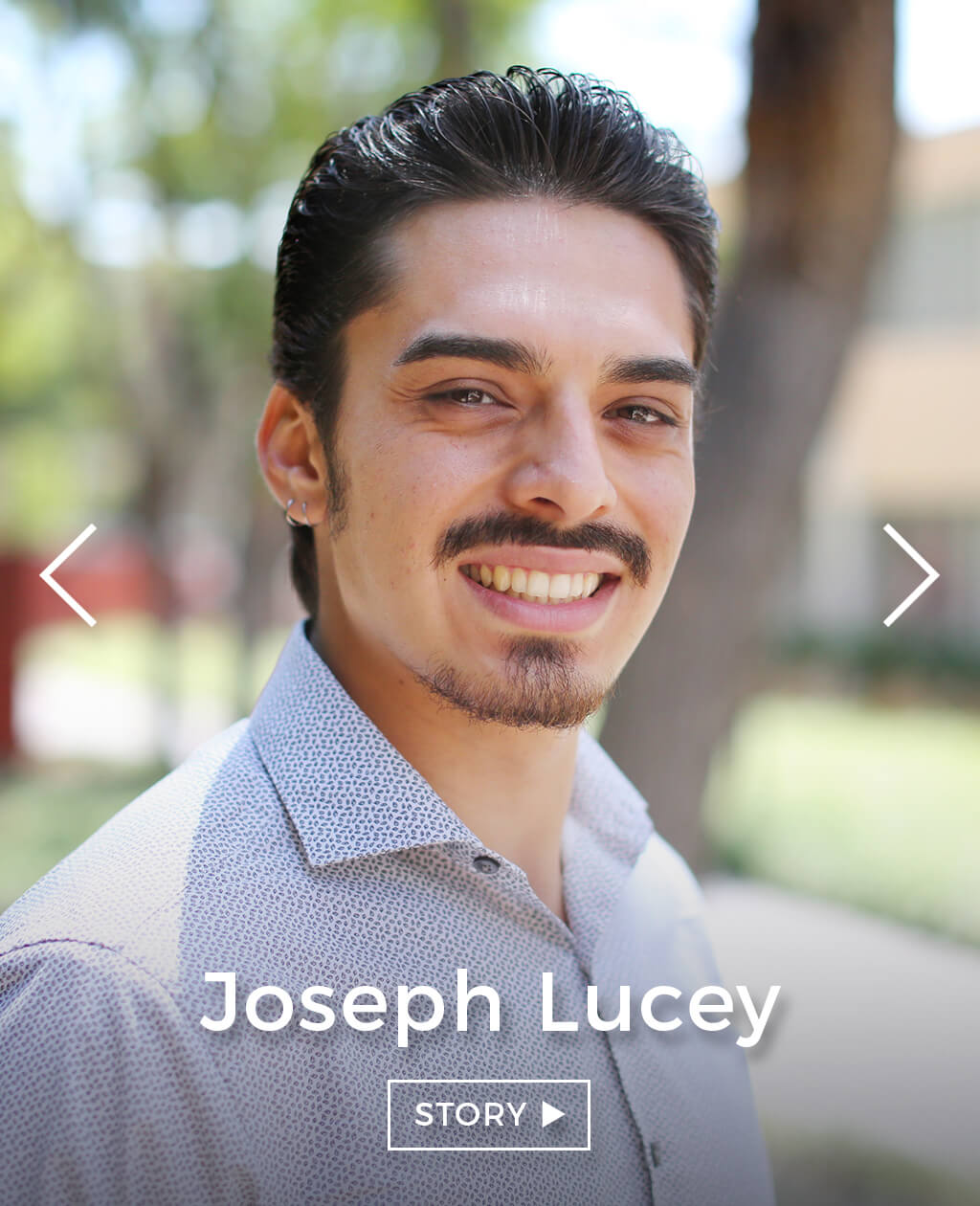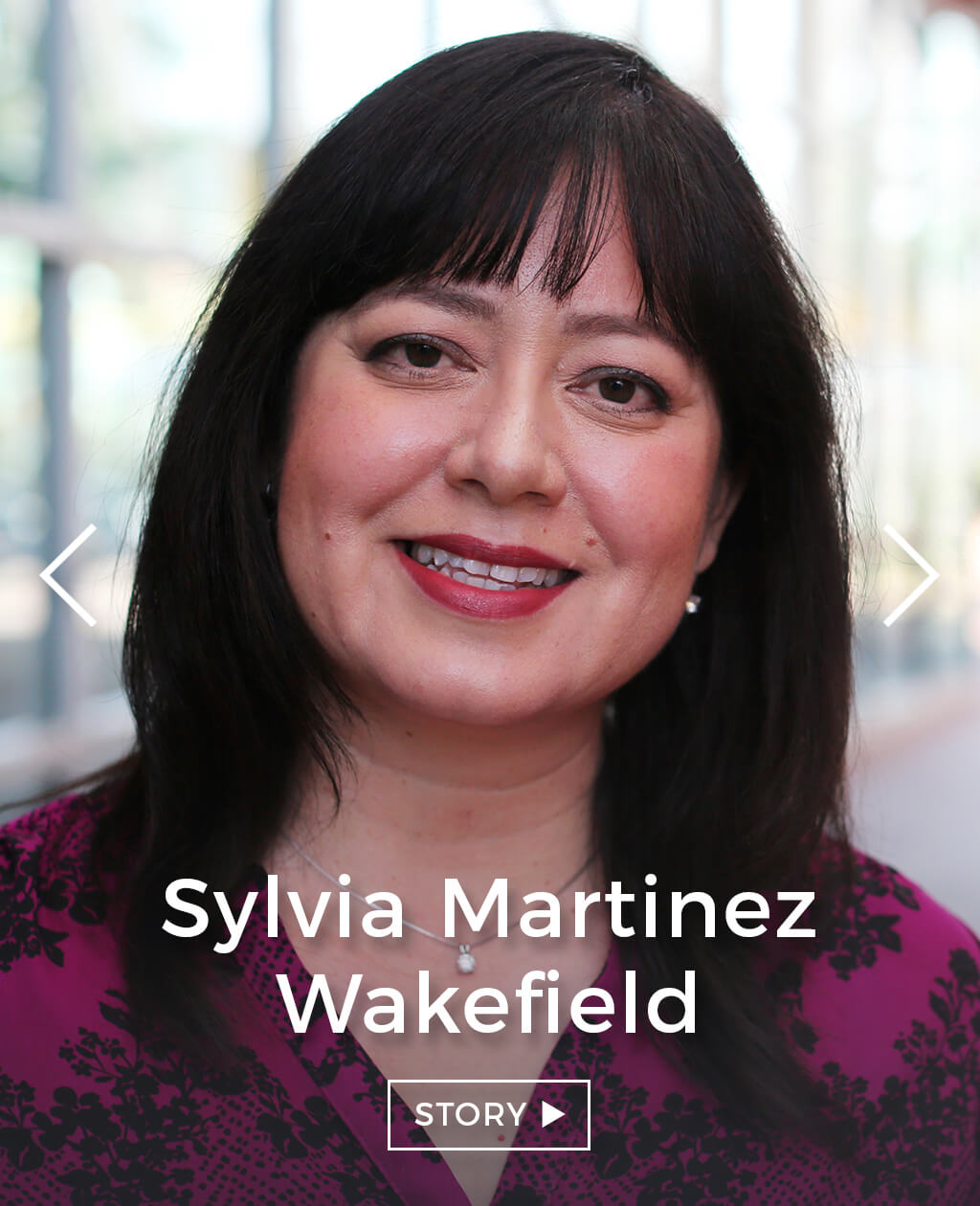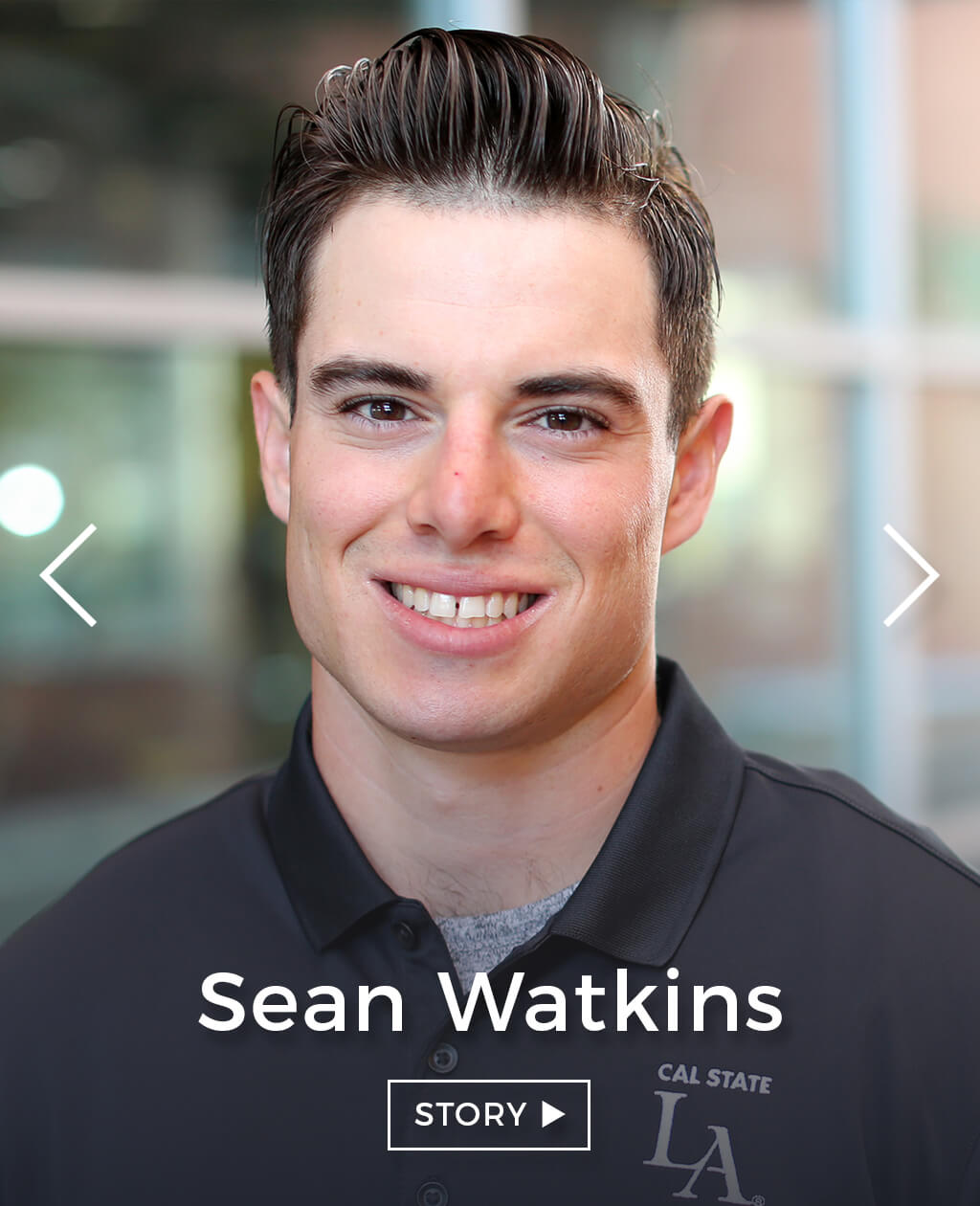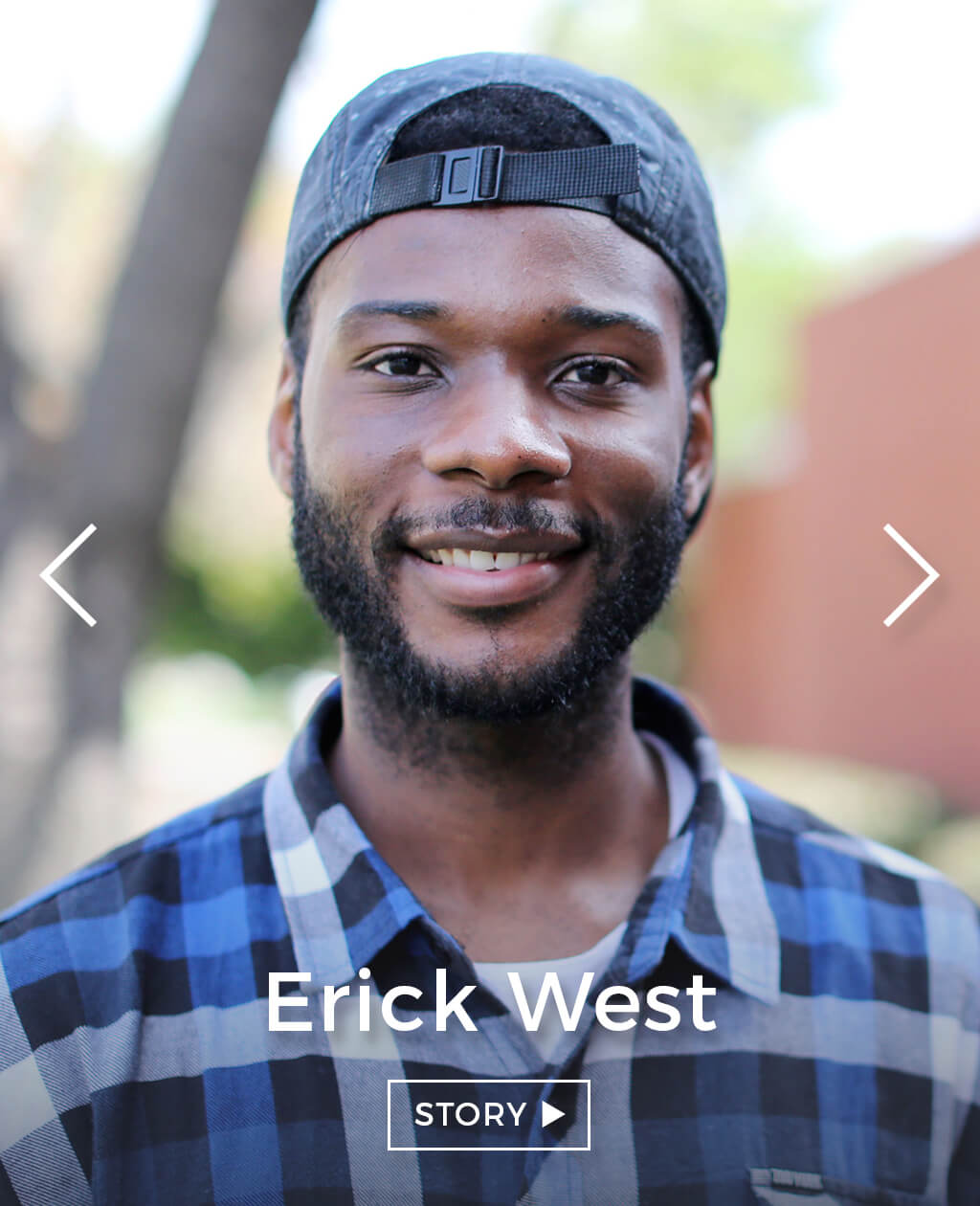Salvador Rojas
Cal State LA master’s graduate shares passion for robotics
He will pursue a Ph.D. at Purdue University in the fall.
By Jillian Beck | Cal State LA News Service
Salvador Rojas stands in front of a crowd of elementary and middle school students gathered inside the University Gymnasium at Cal State LA and asks them to yell: “Wake up, Melo!”
As if on cue, Melo, a humanoid robot, lifts its upper body, head and neck, looking back and forth at each of its hands and arms as if awoken from a slumber.
The children watch awestruck as nearby members of Rojas’ research team maneuver joysticks programmed to control the robot.
“This always inspires me to keep doing outreach events and showing students the possibilities—that if you can think it, you can create it,” says Rojas, who graduated cum laude in May with a Master of Science in Mechanical Engineering.
The 26-year-old Whittier resident will go on to pursue a Ph.D. in mechanical engineering at Purdue University in the fall.
Rojas fostered his passion for engineering at Cal State LA, where he earned a Bachelor of Science in Mechanical Engineering after transferring from Cerritos College.
During his time as an undergraduate student, Rojas helped build an open-wheel race car with the Formula Society of Automotive Engineers team and founded a campus chapter of the American Society of Mechanical Engineers, which he also led as a graduate student.
In a control systems engineering course during his senior year at Cal State LA, Rojas found his research passion. He was fascinated by how to design, build and control mechanisms—anything from car engines to machines to robots.
Rojas was selected for a prestigious California State University – Louis Stokes Alliance for Minority Participation Bridge to the Doctorate fellowship, which supported his pursuit of a master’s degree at Cal State LA. The fellowship is funded by the National Science Foundation and the CSU Office of the Chancellor.
Growing up, Rojas always loved art and would draw whatever popped into his imagination—from nature to Spiderman climbing and swinging from buildings. His affinity for art helps him now as he translates an image in his mind into reality through engineering, something that has come in handy when designing Melo.
“We’re throwing art and creativity into this design process and bringing it to life using engineering software,” Rojas says.
Working with his faculty research mentor Professor He Shen, Rojas and his team of six undergraduate computer science and mechanical and electrical engineering students built Melo over the span of about a year and a half.
When starting out, Rojas purchased a used motorized chair with a mechanical wheeled platform. The platform would serve as Melo’s base. The man that sold it to Rojas had refurbished the chair for his elderly father, Carmelo. His father was set to leave the hospital but died unexpectedly of cardiac arrest, Rojas says. When it came time to name his robot, Melo felt like the perfect fit.
Melo is made of aluminum, steel, composites and other materials and repurposed electronics using 3D-printing and manufacturing. An Xbox Kinect acts as the head, allowing a user to connect remotely with a laptop to see and hear through the robot.
The ultimate goal for Rojas is to develop a robot that can go where humans do not want to or cannot. Robots can open possibilities in space and oceanic exploration, provide safer options in natural disasters and search and rescue missions, work in hospitals, or go to school or work for us, Rojas says.
He tries to convey the vast possibilities of robotics to audiences, like the elementary and middle school students who were introduced to Melo on a campus visit.
Giving back to his community is important to Rojas, who was formerly in the foster care system. He recently went to a gathering for the university’s Guardian Scholars program and spoke about his experience and success at Cal State LA.
Rojas is a member of the engineering honor society Tau Beta Pi. He received the Emerging Researchers National Conference student travel award and was awarded graduate student and faculty mentor recognition during both years of his master’s program.
Rojas was a student speaker at the College of ECST Honors Convocation and received Special Recognition in Graduate Studies, which is awarded to students who maintain a GPA of 3.8 or higher in 80 percent or more of their required program.
In the fall, Rojas will begin a five-year doctoral program at Purdue University, which has awarded him the George Washington Carver Doctoral Fellowship.
In the future, Rojas sees himself returning to his home of Los Angeles, perhaps as a professor at Cal State LA.
“I know there’s a lot of people that need help,” Rojas says. “My biggest contribution would be to come back after pursuing my doctoral degree and hopefully teach and get a better understanding of what this community needs.”
####
STUDENT SUCCESS
STUDENT SUCCESS
